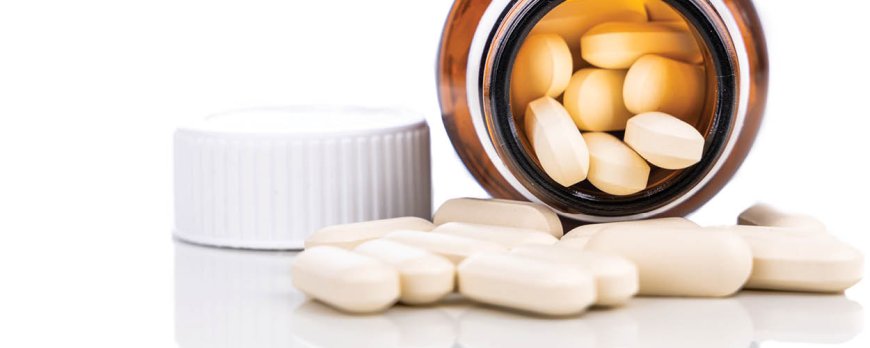Do probiotics make you sleep better?
Discover the correlation between probiotics and sleep. Do probiotics make you sleep better? Read our in-depth coverage to find out more.

Do probiotics make you sleep better?
Probiotics have been the subject of recent studies investigating their effects on sleep quality. Recent research suggests that incorporating probiotics into your routine could potentially improve your sleep. Studies have shown that probiotics can have a positive impact on mood, anxiety, depression, and cognitive reactivity to sad mood, all of which are factors that can influence sleep patterns. Additionally, gut bacteria play a role in the production of neurotransmitters like serotonin, which is involved in regulating sleep. Taking specific strains of probiotics, such as Lactobacillus acidophilus Rosell-52 and Bifidobacterium longum Rosell-175, has been associated with reduced anxiety, sleep disturbances, and low mood. Promoting the growth of beneficial gut bacteria through prebiotics, which are food sources for probiotics, may also improve sleep quality. Overall, incorporating probiotics into your daily routine and supporting gut health could provide a natural way to enhance your sleep.
Key Takeaways:
- Probiotics have been shown to improve sleep quality in studies.
- They can positively affect mood, anxiety, depression, and cognitive reactivity to sad mood.
- Gut bacteria, influenced by probiotics, produce neurotransmitters involved in sleep regulation.
- Specific strains like Lactobacillus acidophilus Rosell-52 and Bifidobacterium longum Rosell-175 have been linked to reduced anxiety, sleep disturbances, and low mood.
- Prebiotics, which support the growth of beneficial gut bacteria, may also improve sleep quality.
The correlation between probiotics and sleep quality
Recent studies suggest a correlation between probiotics and improved sleep quality. One study found that participants who consumed a probiotic mixture experienced not only an improvement in mood but also in sleep quality. This indicates that probiotics may play a role in promoting better sleep. It's worth noting that other research has shown probiotics to have potential benefits in reducing anxiety, depression, and cognitive reactivity to sad mood, all of which can impact sleep.
Gut bacteria have been found to produce neurotransmitters, such as serotonin, which is involved in regulating sleep. By influencing the production of these neurotransmitters, probiotics may indirectly promote better sleep patterns. Furthermore, probiotics have shown promise in improving sleep in specific populations, including the elderly, suggesting that they may have broad applications in sleep health.
Specific strains of probiotics, such as Lactobacillus acidophilus Rosell-52 and Bifidobacterium longum Rosell-175, have been extensively researched for their potential to reduce anxiety, sleep disturbances, and low mood. These strains, among others, have demonstrated promising results in studies and could be considered for individuals looking to improve their sleep quality naturally. Additionally, prebiotics, which serve as food sources for probiotics, have been shown to promote the growth of beneficial gut bacteria. This may, in turn, improve sleep quality.
While further research is needed to fully understand the mechanisms through which probiotics impact sleep, the existing evidence suggests that incorporating probiotics into a daily routine may be a natural way to enhance sleep quality. By supporting gut health and influencing neurotransmitter production, probiotics have the potential to contribute to a more restful sleep experience. It's important to consult with a healthcare professional before starting any new supplements or making significant changes to your sleep routine.
Probiotics and the Production of Neurotransmitters
Gut bacteria, which are influenced by probiotics, produce neurotransmitters involved in regulating sleep. Recent studies have shown that probiotics can have a positive effect on sleep quality. In one study, participants who consumed a probiotic mixture experienced an improvement in mood and sleep quality. This suggests that probiotics may have a direct impact on sleep patterns.
Furthermore, probiotics have been found to reduce anxiety, depression, and cognitive reactivity to sad mood, all of which can affect sleep. The link between gut health and mental health is well-established, and probiotics may play a role in improving both. Specific strains of probiotics, such as Lactobacillus acidophilus Rosell-52 and Bifidobacterium longum Rosell-175, have been studied for their effects on reducing anxiety, sleep disturbances, and low mood.
Additionally, the production of neurotransmitters, such as serotonin, is influenced by gut bacteria. Serotonin is involved in regulating sleep, and the balance of gut bacteria may impact its production. By promoting a healthy gut environment, probiotics may indirectly improve sleep quality.
In conclusion, probiotics may have a positive effect on sleep patterns by influencing the production of neurotransmitters and improving mental health. Incorporating probiotics into your routine and supporting gut health could be a natural way to potentially improve sleep quality. Further research is needed to fully understand the mechanisms through which probiotics impact sleep, but current studies suggest promising results.

Probiotics and Mental Health
Studies have shown that probiotics can reduce anxiety, depression, and cognitive reactivity to sad mood, factors that can affect sleep. Recent research suggests that a healthy gut may play a crucial role in promoting mental well-being, and probiotics could be a natural way to support that. By promoting the growth of beneficial gut bacteria, probiotics help create a balanced and diverse microbiome, which in turn can positively impact mental health.
Specific strains of probiotics, such as Lactobacillus acidophilus Rosell-52 and Bifidobacterium longum Rosell-175, have been studied for their potential effects on reducing anxiety, sleep disturbances, and low mood. These strains, when incorporated into a daily routine, may have a beneficial impact on overall mental well-being and indirectly improve sleep quality.
Furthermore, probiotics' positive impact on mental health can indirectly contribute to improved sleep. By reducing anxiety and depression, probiotics help create a more relaxed and calm state of mind, which can aid in falling asleep faster and experiencing deeper, more restful sleep. As sleep quality improves, individuals may also find that their overall sleep health and well-being are enhanced, leading to increased daytime energy and improved cognitive function.
While more research is needed to fully understand the extent and mechanisms of probiotics' impact on mental health and sleep, incorporating probiotics into a daily routine could be an easy, natural, and potentially beneficial way to support a healthy mind and body.
Probiotics for Specific Populations
Probiotics have been found to improve sleep in various populations, including the elderly. Recent studies suggest that incorporating probiotics into a daily routine can potentially promote better sleep quality for individuals of all ages. The gut-brain axis, the bidirectional communication system between the gut and the brain, plays a crucial role in regulating sleep and mood. By supporting gut health with probiotics, it is possible to positively influence sleep patterns and overall sleep health.
Probiotic Strains with Sleep Benefits
Certain strains of probiotics, such as Lactobacillus acidophilus Rosell-52 and Bifidobacterium longum Rosell-175, have shown promising effects on reducing anxiety, sleep disturbances, and low mood. These specific probiotic strains have been extensively researched for their potential sleep benefits. The consumption of these strains may contribute to improved sleep quality by modulating neurotransmitter production and reducing inflammation in the body.
The Role of Prebiotics in Promoting Better Sleep
Prebiotics, which are food sources for probiotics, can further enhance the potential sleep benefits of probiotics. By providing nourishment to beneficial gut bacteria, prebiotics support the growth and proliferation of these microorganisms. This, in turn, may promote a healthier gut environment, leading to improved sleep quality. Including prebiotic-rich foods, such as bananas, garlic, and onions, in the diet can help maintain a well-balanced gut microbiome and potentially enhance sleep.
While the research on probiotics and sleep is still evolving, findings suggest that supporting gut health with probiotics and prebiotics presents a natural and holistic approach to improving sleep. Incorporating probiotics into a daily routine, especially strains that have been specifically studied for their sleep benefits, may contribute to better sleep quality and overall well-being. However, it is important to consult with a healthcare professional before starting any new supplement regimen to ensure it aligns with individual health needs and goals.

Probiotic strains with sleep benefits
Certain strains of probiotics, such as Lactobacillus acidophilus Rosell-52 and Bifidobacterium longum Rosell-175, have shown promising results in improving sleep quality. These strains have been specifically studied for their potential to reduce anxiety, sleep disturbances, and low mood, all of which can significantly impact sleep patterns and overall sleep quality.
Research has indicated that consuming a probiotic mixture containing these strains can lead to improvements in mood and sleep quality. This suggests that supporting gut health through the use of targeted probiotic strains may offer a natural way to enhance sleep and promote better overall sleep patterns.
By modulating the gut microbiome and influencing the production of neurotransmitters like serotonin, probiotics can indirectly impact sleep. Serotonin plays a crucial role in regulating sleep, and by promoting its production, probiotics can potentially help improve the quality and duration of sleep.
Other potential benefits of probiotics for sleep
- Reducing anxiety and depression
- Enhancing cognitive function and reducing cognitive reactivity to negative mood
- Supporting overall gut health and reducing inflammation
While more research is needed to fully understand the mechanisms through which probiotics improve sleep, the existing studies suggest that incorporating probiotics into your routine could be a worthwhile consideration for those seeking better sleep quality.
The Role of Prebiotics in Improving Sleep
Prebiotics may play a role in improving sleep quality by supporting the growth of beneficial gut bacteria. Recent studies have shown that probiotics, which are live bacteria and yeast that are beneficial for our health, can have a positive impact on sleep. But what about prebiotics, which are food sources for probiotics? They too may have sleep benefits.
By consuming prebiotic-rich foods, such as bananas, onions, garlic, and whole grains, you can create an environment in your gut that allows probiotics to thrive. This, in turn, can lead to better sleep. When probiotics flourish in the gut, they can produce important neurotransmitters like serotonin, which is involved in regulating sleep. Serotonin helps to calm the mind and promote feelings of relaxation, ultimately supporting a restful night's sleep.
Other Sleep Benefits of Prebiotics:
- Reduced anxiety and depression: Several studies have shown that prebiotics can help reduce symptoms of anxiety and depression, which are often associated with sleep difficulties.
- Improved cognitive function: Research suggests that prebiotics can enhance cognitive function, including memory and attention, which are important for optimal sleep performance.
- Enhanced overall gut health: A healthy gut is essential for overall well-being, and it can positively impact sleep quality. Prebiotics can help nourish the gut microbiota, improving digestion and reducing gastrointestinal issues that may disrupt sleep.
To incorporate prebiotics into your routine, consider adding foods like oats, asparagus, apples, and flaxseeds to your daily diet. These foods are rich in prebiotic fibers that can support the growth of beneficial gut bacteria.
While more research is needed to fully understand the relationship between prebiotics and sleep, incorporating prebiotic-rich foods into your diet can have multiple health benefits, including potential improvements in sleep quality. Pairing prebiotics with probiotics may offer even greater sleep benefits, as the two work synergistically to support gut health. So, if you're looking for a natural way to enhance your sleep, consider giving prebiotics a try.

Additional benefits of probiotics for sleep
Probiotics may offer additional benefits for sleep, including reducing inflammation and supporting overall gut health. Inflammation in the body has been linked to sleep disturbances and disorders, such as insomnia. Studies have shown that certain probiotic strains can help decrease inflammation and improve sleep quality. By reducing inflammation, probiotics may contribute to a calmer state, making it easier to fall asleep and stay asleep throughout the night.
Furthermore, maintaining a healthy gut is crucial for overall well-being, including sleep health. Probiotics help support the growth of beneficial gut bacteria, which play a crucial role in digestion and nutrient absorption. A balanced and diverse gut microbiome is essential for optimal health, and studies suggest that an imbalance in gut bacteria could be linked to sleep disorders.
Supporting gut health for better sleep
- Include probiotic-rich foods in your diet, such as yogurt, kefir, sauerkraut, and kimchi.
- Consider taking a high-quality probiotic supplement that contains strains known to support sleep, such as Lactobacillus acidophilus Rosell-52 and Bifidobacterium longum Rosell-175.
- Eat a diet rich in prebiotic foods, such as onions, garlic, leeks, bananas, and whole grains. Prebiotics act as fuel for probiotics, supporting their growth and activity in the gut.
- Avoid excessive consumption of processed foods, sugar, and alcohol, as these can disrupt the balance of gut bacteria.
- Practice stress management techniques, as stress can negatively impact gut health. Consider activities such as meditation, deep breathing exercises, or yoga.
Incorporating probiotics into your routine and taking steps to support gut health could provide a natural and effective way to improve sleep quality. However, it's important to note that individual responses to probiotics may vary, and it's always best to consult with a healthcare professional before starting any new supplement regimen.
Potential Mechanisms of Action
The mechanisms by which probiotics improve sleep are still being investigated, but potential pathways include the gut-brain axis and anti-inflammatory effects.
Gut-brain axis: The gut and brain are connected through a bidirectional communication pathway known as the gut-brain axis. Probiotics can influence this axis by modulating the gut microbiota, which in turn affects various physiological functions, including sleep. By promoting a healthy balance of beneficial gut bacteria, probiotics may help regulate the production of neurotransmitters involved in sleep, such as serotonin.
Anti-inflammatory effects: Inflammation in the body has been linked to various sleep disorders and poor sleep quality. Probiotics have shown potential anti-inflammatory effects, which could indirectly improve sleep. By reducing inflammation, probiotics may alleviate conditions that interfere with sleep, such as pain or discomfort, allowing for a more restful night's sleep.
Other potential mechanisms: While more research is needed to fully understand the mechanisms, studies have suggested that probiotics may also impact sleep by influencing the circadian rhythm, the body's internal clock that regulates sleep-wake cycles. Additionally, probiotics may enhance the absorption and utilization of nutrients that support sleep, such as tryptophan, an amino acid precursor to serotonin.

Incorporating probiotics into your routine
If you're interested in trying probiotics to enhance sleep quality, here are some tips for incorporating them into your daily routine:
- Choose the right probiotic: Look for probiotic supplements that contain strains specifically studied for their sleep benefits, such as Lactobacillus acidophilus Rosell-52 and Bifidobacterium longum Rosell-175. These strains have shown promising results in reducing anxiety, sleep disturbances, and low mood.
- Follow the recommended dosage: It's important to take probiotics as directed on the packaging or as advised by a healthcare professional. Follow the recommended dosage to ensure you are getting the right amount of beneficial bacteria for potential sleep improvement.
- Time it right: To maximize the potential benefits of probiotics for sleep, consider taking them before bed. This can help support the production of sleep-regulating neurotransmitters and promote a more restful night's sleep.
- Combine with a healthy lifestyle: While probiotics can offer potential sleep benefits, they work best when combined with a healthy lifestyle. Aim to eat a balanced diet, exercise regularly, and manage stress levels, as these factors can also contribute to better sleep quality.
- Consult a healthcare professional: If you have any underlying health conditions or concerns, it's always a good idea to consult a healthcare professional before starting any new supplement, including probiotics.
Remember, everyone's body is unique, and the effects of probiotics may vary from person to person. It's important to listen to your body and make adjustments as needed. With consistent use and a holistic approach to sleep health, probiotics may offer a natural way to support better sleep quality.
Future Research and Considerations
While current research suggests a positive correlation, further studies are needed to fully understand the impact of probiotics on sleep quality. While some studies have shown promising results, more research is needed to determine the optimal dosage, duration, and specific probiotic strains that may be most effective in improving sleep. Additionally, it would be beneficial to explore the long-term effects of probiotics on sleep health, as many studies have focused on short-term outcomes.
Additional areas of future research could include:
- Investigating the mechanisms through which probiotics influence sleep, such as examining gut-brain communication pathways and the role of inflammation.
- Exploring the potential interactions between probiotics and other sleep interventions, such as medications or lifestyle changes.
- Conducting studies on diverse populations, including different age groups and individuals with sleep disorders, to determine if the effects of probiotics are consistent across various demographic groups.
- Examining the impact of probiotics on different aspects of sleep, such as sleep onset latency, sleep efficiency, and overall sleep architecture.
By addressing these research gaps, scientists can gain a more comprehensive understanding of the relationship between probiotics and sleep quality. This knowledge will help inform future recommendations and improve sleep outcomes for individuals seeking natural solutions to sleep disturbances. In the meantime, it is always advisable to consult with a healthcare professional before starting any new dietary supplements or making significant changes to your sleep routine.
Conclusion
Based on recent studies, there is evidence to suggest that incorporating probiotics into your routine could potentially improve sleep quality. A study found that participants who consumed a probiotic mixture experienced an improvement in mood and sleep quality, highlighting the potential benefits of probiotics for better sleep. Other studies have shown that probiotics can reduce anxiety, depression, and cognitive reactivity to sad mood, all of which can affect sleep.
Gut bacteria play a crucial role in producing neurotransmitters like serotonin, which regulate sleep. By influencing the production of these neurotransmitters, probiotics may indirectly improve sleep patterns. This has been supported by research that found probiotics to be effective in improving sleep in various populations, including the elderly.
Specific strains of probiotics, such as Lactobacillus acidophilus Rosell-52 and Bifidobacterium longum Rosell-175, have been studied for their potential to reduce anxiety, sleep disturbances, and low mood. These probiotic strains show promise in enhancing sleep quality and addressing related issues.
In addition to probiotics, prebiotics have also been found to promote better sleep by nurturing the growth of beneficial gut bacteria. These prebiotics act as food sources for probiotics and can help create an optimal environment in the gut for these beneficial bacteria to thrive.
Overall, the research suggests that incorporating probiotics into your routine and supporting gut health could be a natural and effective way to improve sleep quality. While further research is needed to fully understand the mechanisms through which probiotics influence sleep, the existing evidence highlights their potential benefits for better sleep and overall sleep health.
FAQ
Do probiotics make you sleep better?
Recent studies suggest that probiotics can have a positive effect on sleep quality. Consuming a probiotic mixture has been found to improve mood and sleep quality, reduce anxiety and depression, and regulate sleep patterns.
What is the correlation between probiotics and sleep quality?
Studies have shown that probiotics can improve sleep quality by reducing anxiety, depression, and cognitive reactivity to sad mood. Additionally, probiotics can promote the growth of beneficial gut bacteria, which can improve overall sleep patterns.
How do probiotics affect the production of neurotransmitters?
Probiotics influence the production of neurotransmitters, such as serotonin, which play a role in regulating sleep. By supporting gut health and promoting the growth of beneficial bacteria, probiotics can indirectly improve sleep.
What is the impact of probiotics on mental health and sleep?
Probiotics have been found to reduce anxiety, depression, and cognitive reactivity to sad mood, all of which can affect sleep. By improving mental health, probiotics can indirectly contribute to better sleep quality.
Are probiotics beneficial for specific populations in relation to sleep?
Research suggests that probiotics can improve sleep quality in specific populations such as the elderly. Certain strains of probiotics, such as Lactobacillus acidophilus Rosell-52 and Bifidobacterium longum Rosell-175, have been studied for their effects on reducing anxiety, sleep disturbances, and low mood.
How do prebiotics improve sleep quality?
Prebiotics, which are food sources for probiotics, can promote the growth of beneficial gut bacteria. By supporting the growth of these bacteria, prebiotics can potentially improve sleep quality.
Are there any additional benefits of probiotics for sleep?
In addition to improving sleep quality, probiotics may also have other benefits such as reducing inflammation and improving overall gut health. These benefits can indirectly contribute to better sleep.
What are the potential mechanisms of action through which probiotics improve sleep?
Probiotics may improve sleep through various mechanisms, such as modulating the gut-brain axis, regulating neurotransmitter production, and reducing inflammation. Further research is needed to fully understand these mechanisms.
How can probiotics be incorporated into a daily routine to improve sleep?
Probiotics can be consumed through foods such as yogurt, kefir, sauerkraut, and kimchi. Additionally, probiotic supplements are available. It is important to choose high-quality probiotic products and consult with a healthcare professional for personalized recommendations.
What should be considered when using probiotics for sleep improvement?
While probiotics have shown potential benefits for sleep, it is important to note that individual responses may vary. It is recommended to consult with a healthcare professional before starting any new supplement regimen.
What are the future research and considerations regarding probiotics and sleep?
Further research is needed to fully understand the specific mechanisms through which probiotics improve sleep and to identify the most effective probiotic strains. Additionally, considering individual variations in gut microbiota and potential interactions with medications is important when using probiotics for sleep improvement.


































































































































